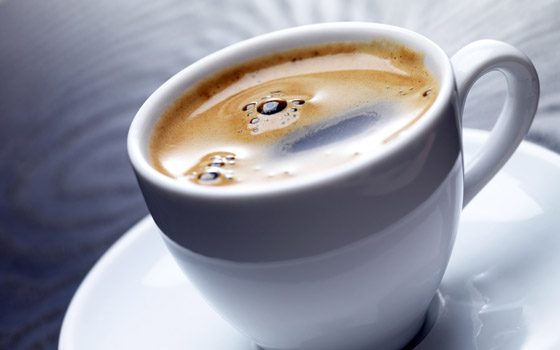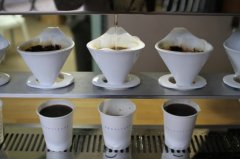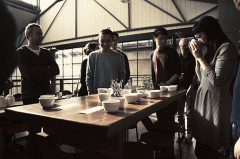What is the effect of altitude on coffee flavor? Coffee bean flavor

The influence of geographical location on the flavor of coffee beans is profound. All coffee grows in the tropics, and the altitude at which it grows has a profound effect on the taste of coffee. The tropical belt extends from 30 degrees north latitude to the equatorial regions of the southern mountains that produce the world's truly high-quality Arabica coffee. Central and South America, South Asia and some Pacific islands, and south-central Africa are also the most important coffee-growing areas in the world.
3000-6000 feet above sea level provide ideal conditions for coffee to grow: an average frost-free climate of 60-70 degrees Fahrenheit throughout the year, about 80 inches of moderate rainfall, and plenty of sunshine. Coffee beans grow slowly in cold mountain areas, but the slow ripening process makes coffee beans have higher sugar content, more interesting flavor and mellow flavor. High displacement at high altitudes produces more concentrated fruit flavors, and the best Arabica coffee growing areas have very fertile soil, often in volcanic areas.
Coffee beans grown at high elevations are hard, dense and have the potential to give full play to their special flavor. The really amazing coffee growing areas are between 4000 and 6000 feet above sea level, and these beans are picked carefully only during the mature season. Coffee in Central America is rated according to the altitude at which it grows. For example, SHB (Strictly Hard Bean) is the term for Guatemalan coffee beans, indicating that coffee grows above 4500 feet. Mexico is called Altura, which means "high" in Spanish, indicating that it is high-altitude coffee; Papua New Guinea appends the name "Mile High" to mark coffee beans grown in the highlands and mountains.
Generally speaking, with the increase of altitude, the aroma of coffee becomes more and more prominent and unique (see figure). From the temperature and sweetness of Brazilian beans at 3500 feet to the soaring taste of Ethiopian coffee beans above 6000 feet, altitude will give coffee beans a more complex and subtle taste.
Original English provenance: http://www.scribblerscoffee.com/flavor_effect_of_altitude
Important Notice :
前街咖啡 FrontStreet Coffee has moved to new addredd:
FrontStreet Coffee Address: 315,Donghua East Road,GuangZhou
Tel:020 38364473
- Prev

This paper introduces the varieties and brewing methods of black coffee.
Aroma is not only the life of coffee quality, but also the best expression of coffee production process and roasting technology. The climate of the place of production, variety, refined treatment, harvest, storage, and the appropriateness of baking technology in the consuming country are all conditions that determine the aroma of coffee beans. Bitterness is the basic taste of black coffee, with differences in strength and texture. Raw beans contain only a tiny amount of bitterness, followed by sugar caused by baking.
- Next

How to use SCAA Cup Test form Cup Test form how to fill in?
CoffeeCupping, which is translated into Chinese for coffee cup test, cup taste or cup evaluation, is a very magical and simple method of coffee sensory evaluation. The quality of coffee is judged by the sense of taste, which is called coffee cup test. The person who evaluates it is called a coffee quality appraiser. Similar to wine tasting, when testing the cup, make the coffee flow back and forth in the mouth and make full use of your sense of taste and smell to feel the coffee.
Related
- Detailed explanation of Jadeite planting Land in Panamanian Jadeite Manor introduction to the grading system of Jadeite competitive bidding, Red bid, Green bid and Rose Summer
- Story of Coffee planting in Brenka region of Costa Rica Stonehenge Manor anaerobic heavy honey treatment of flavor mouth
- What's on the barrel of Blue Mountain Coffee beans?
- Can American coffee also pull flowers? How to use hot American style to pull out a good-looking pattern?
- Can you make a cold extract with coffee beans? What is the right proportion for cold-extracted coffee formula?
- Indonesian PWN Gold Mandrine Coffee Origin Features Flavor How to Chong? Mandolin coffee is American.
- A brief introduction to the flavor characteristics of Brazilian yellow bourbon coffee beans
- What is the effect of different water quality on the flavor of cold-extracted coffee? What kind of water is best for brewing coffee?
- Why do you think of Rose Summer whenever you mention Panamanian coffee?
- Introduction to the characteristics of authentic blue mountain coffee bean producing areas? What is the CIB Coffee Authority in Jamaica?

